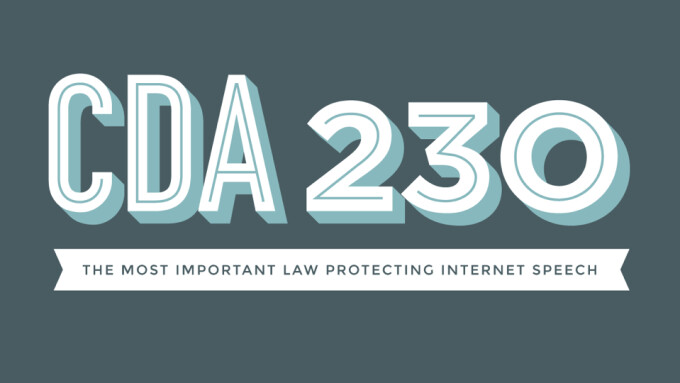WASHINGTON — In a damning new op-ed, one of the nation’s foremost cyber law experts described the onslaught of legislative proposals and recommendations to abolish Section 230 — the so-called “First Amendment of the internet — recently unleashed by the White House, Attorney General William Barr, Senator Lindsey Graham and others, as “Trump-backed rules for online speech: 'no' to porn, 'yes' to election disinformation and hate speech.”
The op-ed’s author, Daphne Keller, is Platform Regulation Director at the Stanford Cyber Policy Center. It was published on Thursday by Slate as part of the Free Speech Project, a collaboration between Future Tense and the Tech, Law & Security Program at American University Washington College of Law which examines the ways technology is influencing how we think about speech.
Future Tense is a partnership of pioneering online publication Slate, New America and Arizona State University to focus on emerging technologies, public policy and society.
Keller’s op-ed is a lucid summation of the sad condition of the Section 230 debate, now completely eroded and politicized by a carnival of competing bipartisan bills.
As XBIZ has reported, none of these proposals are identical; each of them prioritizes the specific interests of their sponsors, from Graham’s insistence in creating a new government bureaucracy to make decisions about what deserves protection from liability and what does not, to the folksy cluelessness of Senator John Kennedy’s bizarre obsession with mind control and manipulation, to the more bipartisan PACT Act, which many observers consider the "adults-in-the-room" option.
Taking Down Pornography
Keller starts off by mentioning an unusually intrusive legislative recommendation by Barr’s Justice Department, one of several of Lindsey Graham’s anti-230 projects on the table.
“Both proposals were prompted by President Trump’s June 2020 executive order on social media, and revising the rules for platform content moderation reportedly remains one of the president’s top priorities for congressional Republicans,” Keller wrote. “The draft laws are extremely revealing about their proponents’ values and priorities, which include taking down pornography and other ‘lawful-but-awful’ online content, but not taking down things like hate speech and electoral disinformation.”
In earlier proposals, Keller continued, “Republicans like Sen. Josh Hawley called for platforms to protect all speech, or to somehow create politically ‘neutral’ rules. The DOJ and Graham bills abandon that approach and instead spell out their drafters’ speech preferences. They would keep immunity in place only for specified categories of 'lawful-but-awful' speech, including pornography, barely legal harassment and pro-terrorist or pro-suicide material. But platforms would face new legal exposure if they take down content for reasons not included in this government-approved list — such as Holocaust denial, white supremacist racial theories and electoral disinformation.”
“Apparently in these lawmakers’ value systems, platforms should be free to take down 'The Virgin Suicides,' but not 'The Protocols of the Elders of Zion,' recommendations to cure COVID-19 by ingesting bleach or misleading information about voting by mail,” Keller writes.
Keller points out that Democrats “haven’t been shy about telling platforms how to moderate user speech, either — they just have different preferred rules. Recent letters from Democrats in Congress have urged platforms to take stronger measures against election- and COVID-related disinformation, ‘violent, objectifying or dehumanizing speech’ about women and white supremacist recruitment and organizing.”
The op-ed also points out that the current phrasing of Section 230, which gave us the internet as we know it, was carefully crafted as “necessary to avoid the ‘moderator’s dilemma,’ in which fear of liability for unlawful user speech deters platforms from trying to moderate content at all.”
To read “Trump-Backed Rules for Online Speech: No to Porn, Yes to Election Disinformation and Hate Speech,” visit Slate.






